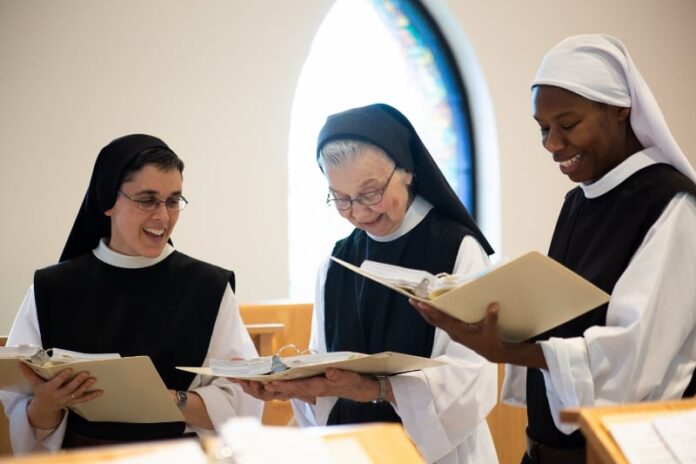
The 13 Sisters of Our Lady of the Angel monastery believe God has a plan for everyone.
When Sister Barbara Smickel arrived on the newly purchased 507-acre farm in central Virginia in 1987, she was surprised to find an abandoned cheese barn filled with ready-to-use machinery. Without much hesitation, Smickle and the others realized God’s plan.
The first rounds of cheese made by the Sisters were in 1990. Their semi-soft, mild Dutch-style Gouda comes in 2-pound wheels. The Sisters use it to make grilled cheese sandwiches.

Tucked in the foothills of the Blue Ridge Mountains, down a lengthy stretch off Route 250, over a bridge, through the woods and at the end of a gravel road sits Our Lady of the Angels Monastery perched on the hillside. This is where the Sisters live a self-sustained lifestyle filled with prayer, devotion and cheese making.
Their day starts around 3 a.m. with a morning prayer. By 7 a.m., Sister Myriam Saint-Vilus leaves mass early to turn on the autoclave. The windows of the cheese room grow foggy as the room heats up to a proper cheese-mixing temperature.

By 9 a.m., Sister Maria Gonzalo forms ovals around steel presses, and by 11 a.m., the machines cut the sheets of cheese mixture into cubes. Sister Jacqueline Melendez takes the cubes and squeezes them into molds. They work in shifts and wear scrubs and rain boots in the barn — it’s a full-day affair.
“This work is good,” Sister Eve Marie Aragona said. “It becomes sort of mindless and allows us to work for God in ways similar to prayer and our studies.”
By: Erin Edgerton / Capital News Service


